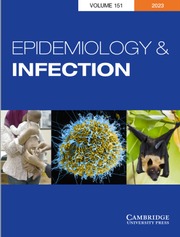Article contents
An Inquiry into the Principal Causes of the Reduction in the Death-Rate from Phthisis during the last Forty Years, with Special Reference to the Segregation of Phthisical Patients in General Institutions
Published online by Cambridge University Press: 15 May 2009
Extract
Phthisis (pulmonary tuberculosis) is distinguished from nearly all other infectious diseases by its protracted duration and by the prolonged disability which it imposes upon enormous numbers of the total working population. It is further distinguished by the complexity of the influences which are regarded as affecting its spread or capable of controlling its prevalence. It is therefore of the first importance that the relative values of measures for controlling phthisis should be closely studied, and that special attention should be given to those which promise the greatest yield for a given expenditure. In particular it is important to be aware of any which can be set to work without the delay and expense involved in creating a new service. The present paper is intended as a contribution to this study. The facts collected in it and others of a similar kind deserve more extended investigation than it has been possible for me to give them in the intervals of official work. They are put forward here without any illusions as to the inevitable shortcomings of their presentation but with a conviction that from the economic standpoint they are of fundamental importance in the prevention of phthisis.
- Type
- Research Article
- Information
- Copyright
- Copyright © Cambridge University Press 1906
References
- 9
- Cited by


